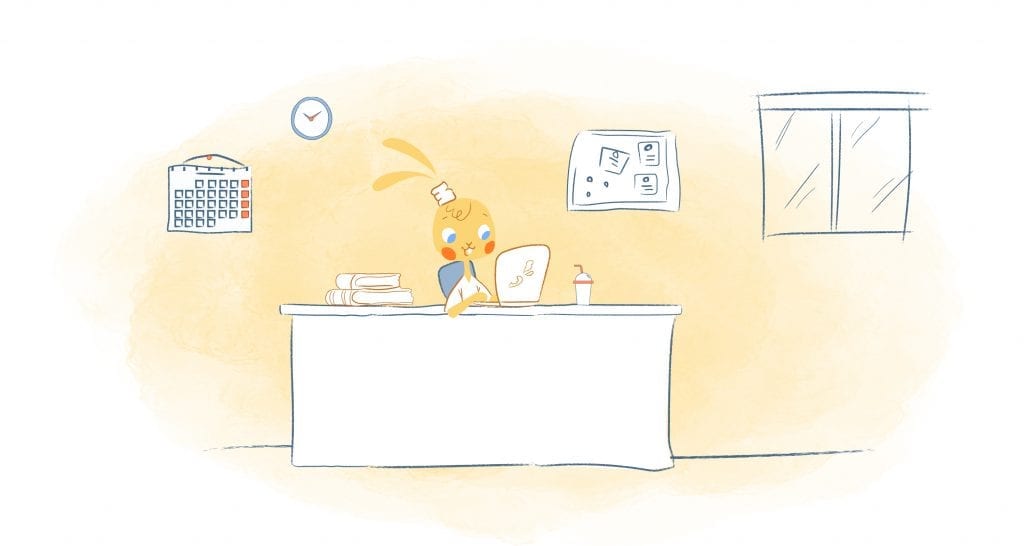

For most people, 10 p.m. seems like a good time to start their bedtime routine. They’ll set goals for the next day, drink some water, brush their teeth, turn out the lights, and go to sleep.
For others, 10 p.m. is the perfect time to get things done. They stay up late, cranking out work well past midnight, and go to bed when it’s light outside.
These are the night owls. They may need less sleep than others, or they may just sleep at different times, but they can function just fine during hours when others can’t. Many of them are big fans of remote work. However, that can get tricky when working on a team.
For most remote teams, core hours fall during the business day. So how can night owls contribute in a way that works with everyone’s schedule, including their own?
Night owls, here’s how to be strong team players without sacrificing your peak performance hours:
Master asynchronous communication
Strong communication is what separates average teams from high performing ones. For those with night owls on board, it’s critical to get right.
The good news is that effective communication can be done without direct responses. Be clear and comprehensive: Tell others precisely what you need from them to complete your work, and ask how you can contribute to their own goals. Respond to questions with direct answers.
The most important thing to communicate about is your schedule. Make sure that the people on your team know you work best at night and encourage them to work the hours that work best for them. If there’s any skepticism, quell their fears by explaining there are legitimate biological reasons that lead you to burn the midnight oil.
You may have to work against common assumptions about night owls — not to mention the ubiquity of the 9-to-5 workday. If you can establish your legitimacy and communicate well, however, you’ll be able to do more for your team than you would in the daytime.
Distinguish between mechanical and higher-order tasks
Just because you are a night owl doesn’t mean that you can’t function at all during the day. Some tasks are more mechanical that you can do when you’re not at your peak. These include responding to individual emails, gathering data, and making calls.
Accomplishing these things during the day can set you up to do your more difficult tasks when you are at your peak. List out the functions that you can do in the daytime in a shared document, and distinguish between the ones that take more and less of your brainpower.
What about collaborative tasks? Your ultradian rhythm may peak during a point of overlap, such as 8 a.m. when the rest of the team is just getting started. The key is to be aware of your energy levels so you can adjust accordingly.
Think through team meetings
Remote teams need meetings to get on the same page. Unfortunately, night owls may not be as attentive during meetings that happen in the core hours of the day. But there are ways to get around this.
Leaders can assign pre-work items before meetings that allow night owls to contribute their insights before the actual meeting begins. Night owls could also record video messages that can be played at the meeting so that their presence is still felt.
If you really do need to be at a daytime meeting, look for periods of overlap. Or, ask whether you could meet with half the group, which may be able to accomplish what you needed to discuss with the broader team.
These actions not only help night owls contribute to meetings, but they also force meetings to be more productive. The extra steps taken to accommodate night owls can benefit the whole group.
Invest in project management software
Instead of keeping track of tasks through word of mouth or emails, use technology to your advantage. Something like a project management tool can streamline the work process significantly and accommodate night owls’ performance.
Project management software like Teamwork and LiquidPlanner gives all the stakeholders in a project the information they need to accomplish those tasks while tracking what is getting done by who and how long it’s taking. It encourages accountability and reduces the stress of task delegation.
With a project management platform, leaders can leave messages on the platform during the daytime. Night owls can check them out in the evening when they can apply their full brain power to the task at hand.
Being a night owl doesn’t excuse you from working on a team. If you can work well with others, the process of finding the right system can actually strengthen the whole. When all is said and done, the night owls’ role is the same: Execute on your tasks and support your team.











Howie Jones
My name is Howie and I'm a Customer Success Manager at Calendar. I like to ensure our customers get the best experience using our product. If you have questions email me howie at calendar.com